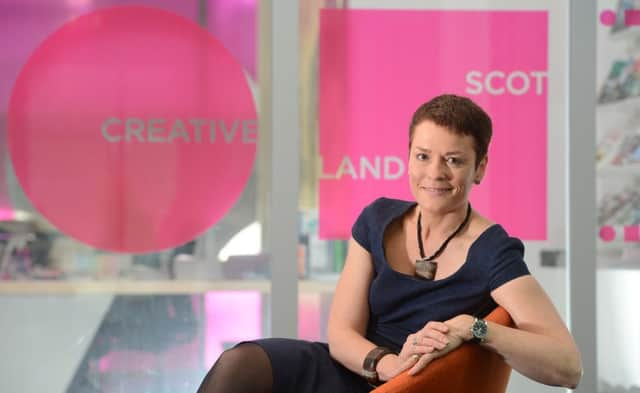Brian Ferguson: Creative Scotland may mark sea change


I’ve no doubt the chief executive of Creative Scotland was glad to get to the end of what must have been a challenging week. After unveiling the quango’s long-delayed ten-year vision, she made a couple of less-than-convincing television appearances to try to explain the thinking behind the 55-page document.
And in these pages on Friday morning she was faced by some very pointed questions by the critic Joyce McMillan over what its funding priorities will be, who will decide on them, and what criteria they will use.
Advertisement
Hide AdAdvertisement
Hide AdBut after such a lengthy “crowd-sourcing” exercise, it would have been a relief to her that the tone, language and key messages – particularly about the importance of individual artists earning a “healthy income” – have been largely welcomed.
Frankly, trying to distill some of the key passages in the blueprint into something sexy would pose a challenge to a Hollywood screenwriter, but at least she was prepared to face the cameras and take questions. That’s more than can be said for Creative Scotland’s chairman, Sir Sandy Crombie, who ducked for cover when the flak started flying at the organisation in 2012 – and did not emerge until the recent announcement he was standing down.
Almost two years after a rebellion triggered by controversy over its funding schemes, it seems Creative Scotland has finally turned a corner under Janet Archer.
Just six months ago, the thought of facing the great and the good of the Scottish film industry would probably have been less than appealing, thanks to an almost daily diet of criticism from influential figures.
When it emerged last September that dozens of them had put their names to an open letter warning of a growing crisis for the industry it marked the swift end of a brief honeymoon period for Ms Archer, who took up her post at the beginning of July.
But since those dire warnings of disaster, the film industry appears to have warmed to her. The funding cap for major productions has been significantly lifted, the appointment of a dedicated director has been welcomed, and it looks likely film will win a bigger share of the quango’s budget next month.
Her handling of the film industry perhaps marks out the crucial difference with her predecessor – an apparent ability to listen and act on concerns.
The mood music has definitely altered.